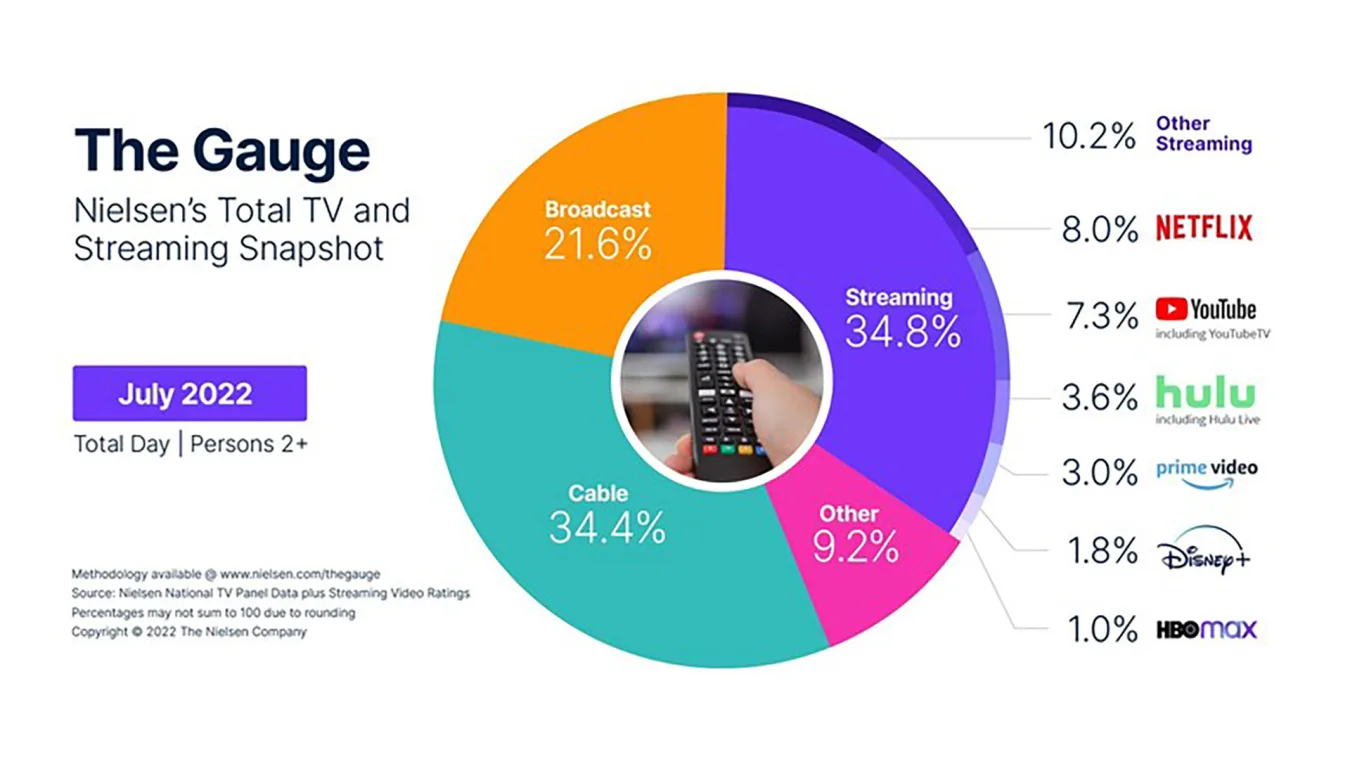
Posted on 08/20/2022 10:40:53 AM PDT by SamAdams76
It was seemingly just a matter of time before streaming overtook at least one form of conventional TV, and now that moment has arrived. Nielsen data indicates that streaming TV viewership in the US surpassed cable for the first time this July. About 34.8 percent of viewing time went to shows on internet services, or slightly more than the 34.4 percent for cable. Streams haven't yet overtaken traditional TV as a whole (broadcasts still represented 21.6 percent), but it's clear online video is capturing more attention.
The shift was helped by a flurry of major releases. Netflix had the largest slice of streaming time (8 percent) thanks largely to demand for Stranger Things 4. However, Hulu also claimed a record 3.6 percent thanks to Only Murders in the Building and The Bear. Amazon Prime Video, meanwhile, thrived at 3 percent with help from The Boys' third season and The Terminal List. YouTube and YouTube TV earned a combined 7.3 percent.
Cable's dependence on sports also played a role. While the medium's overall viewership dipped 8.9 percent year-over-year, sports viewing plunged 34 percent without the help of the Summer Olympics and late-running playoffs for the NBA and NHL. Broadcast TV fared even worse, with a 9.8 percent overall drop and 41 percent for sports.
It's not certain streaming will preserve this momentum. Still, this represents a significant milestone that could affect the content you see. Creators and TV providers now know that you're more likely to stream than browse cable channels — don't be surprised if more money goes toward shows that are primarily or exclusively online.

I want to thank you so much for taking the time to help me .
This is going to be difficult for me as there is much to learn
I appreciate it.
Regards
bkmk
Disclaimer: Opinions posted on Free Republic are those of the individual posters and do not necessarily represent the opinion of Free Republic or its management. All materials posted herein are protected by copyright law and the exemption for fair use of copyrighted works.